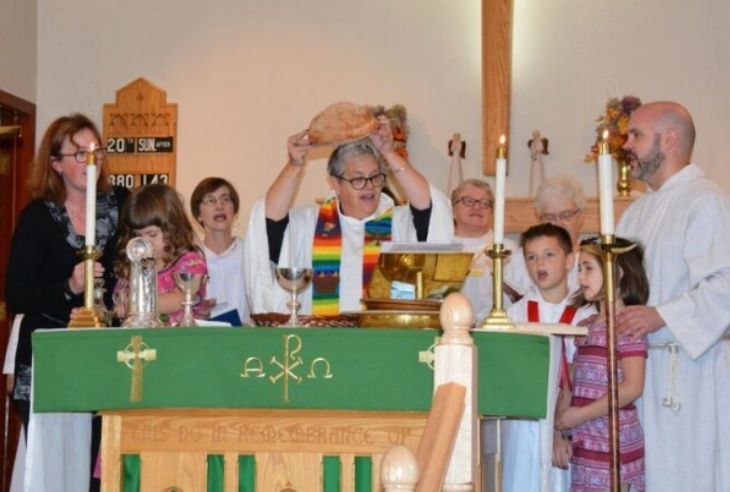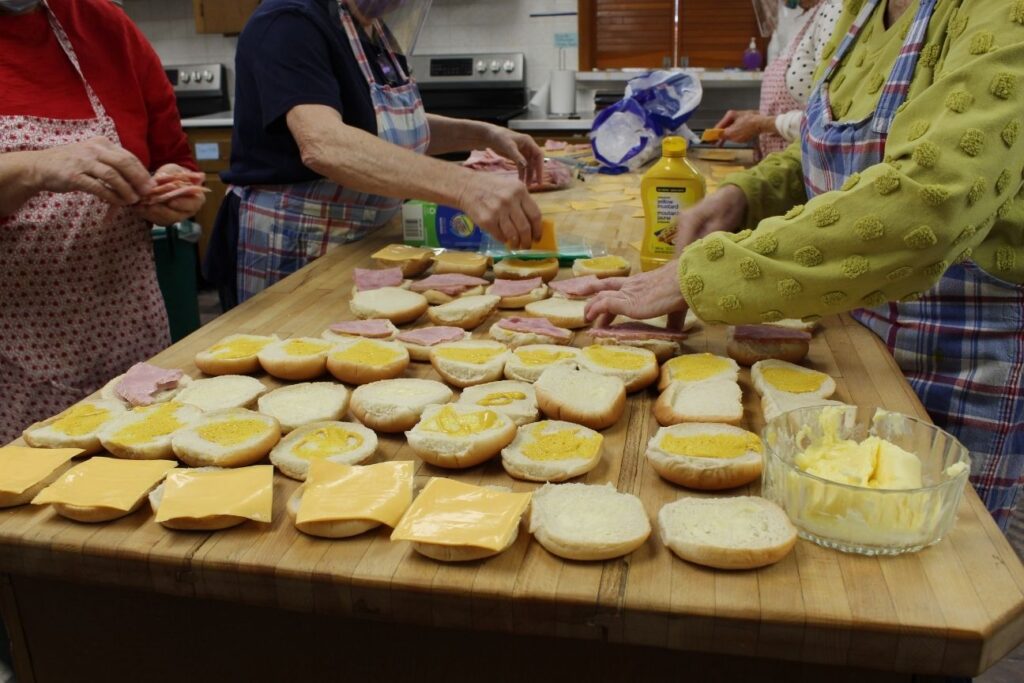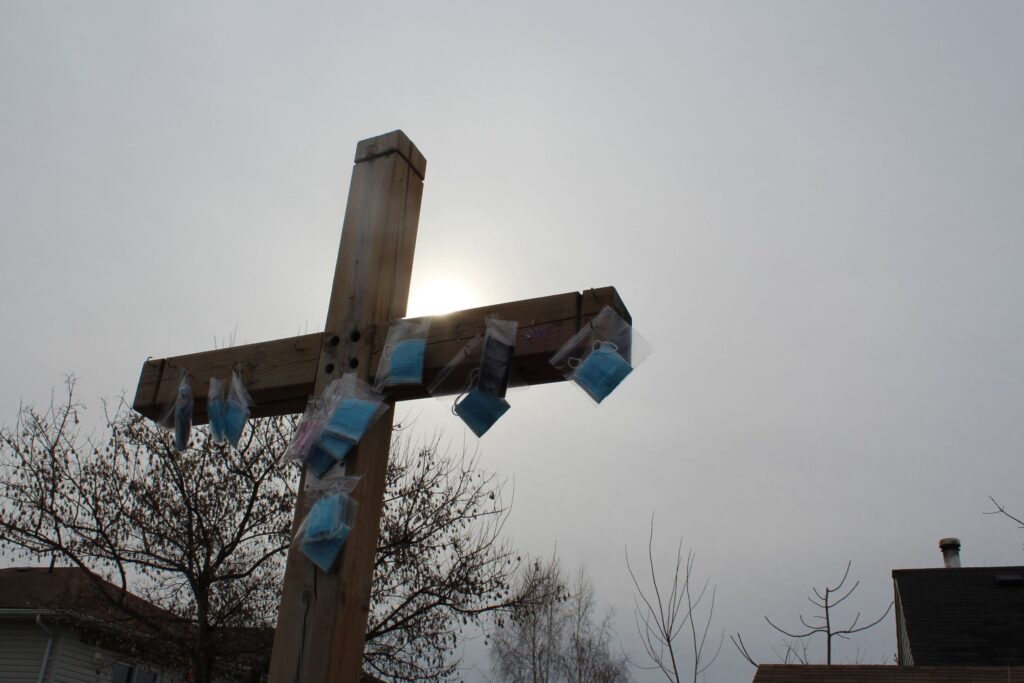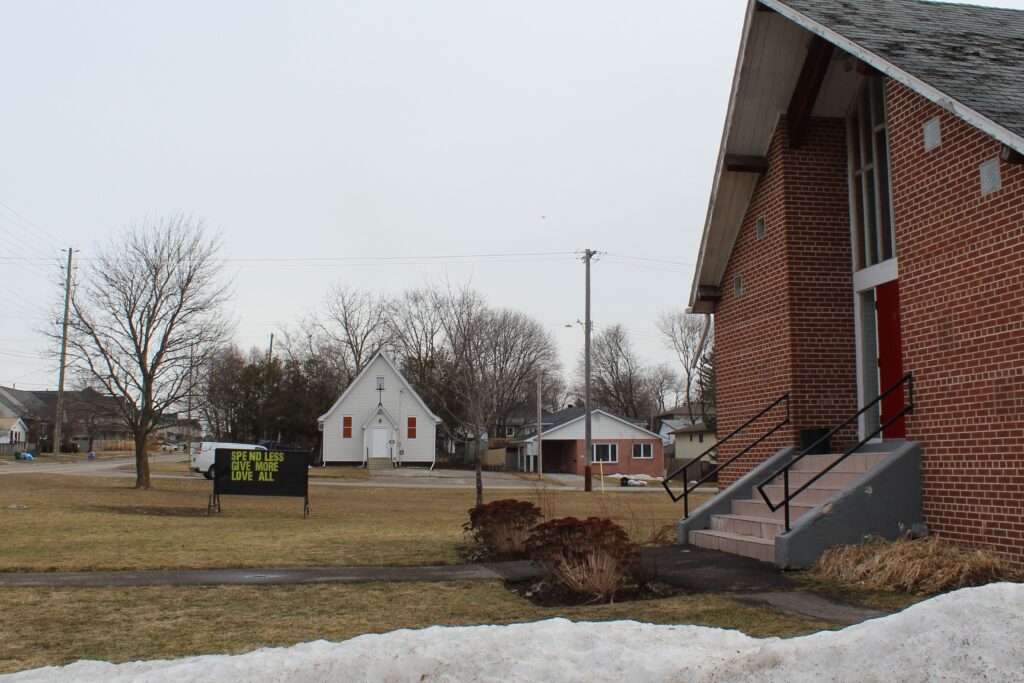By Abby Hughes
On a quiet morning in December 2010, a ringing phone cut through the Good Shepherd parsonage in Brockville, Ontario. Pastor Lori Pilatzke, still in pajamas, paused work on her Christmas Eve sermon to answer it. The caller, Bishop Michael Pryse, countered Pilatzke’s warm greeting with sternness.
“I have something very hard to say,” he said. Pilatzke paced to the bedroom to find her wife, Jen Macklin. “It’s Bishop Mike,” she mouthed, flailing a pointed finger at the phone.
At the time, the Evangelical Lutheran Church in Canada (ELCIC) forbade same-sex marriage. Pilatzke and Macklin had wed anyway in secret only a month before the phone call.
The Bishop asked if Pilatzke had married a woman. She couldn’t dodge the question for long before uttering a meek ‘yes.’ The rest of the call was a blur.
Pilatzke broke a rule and couldn’t keep her job. With no other choice, she resigned.
“I’m thinking a thousand things. Oh my God, my people. Oh my God, I’m losing my job. Oh my God, this isn’t right,” says Pilatzke.
The couple, branded as rule breakers, lost their home, income and community. Despite the painful four years of rebuilding that followed, Pilatzke says she wouldn’t change a thing. After all, it brought her to St. David Anglican-Lutheran Church in Orillia, Ont. where she now works to remind marginalized folks they’re ‘beloved.’
The love story
Pilatzke first spotted Macklin through a sea of church folk and foldable chairs at a Christian summer camp meeting in 2009. With a habit of looking to the outskirts to see who’s left out, Pilatzke scoured the walls of the room. Macklin stood back from the crowd, leaning with an elbow atop the meeting hall’s stage, in conversation with a few board members.
Only as attendees put away refreshments and left the hall did Pilatzke introduce herself.
After talking more at a charity dance months later, Pilatzke and Macklin began emailing back and forth. They started dating in June 2010.
“At 45 years old, you’re pretty clear about what you will and won’t tolerate,” says Pilatzke, her short grey curls bouncing with each boisterous gesture. “I had a checklist.”
And Macklin checked out. Despite the short time they’d been together, the pair started planning a wedding for fall 2011.
As November dusk fell on the parsonage, Pilatzke and Macklin exchanged vows and rings in a 15-minute ceremony. They signed paperwork on the dining room table before popping champagne with Macklin’s mom and stepdad, and the cleric who wed them.
And then that phone rang in December.
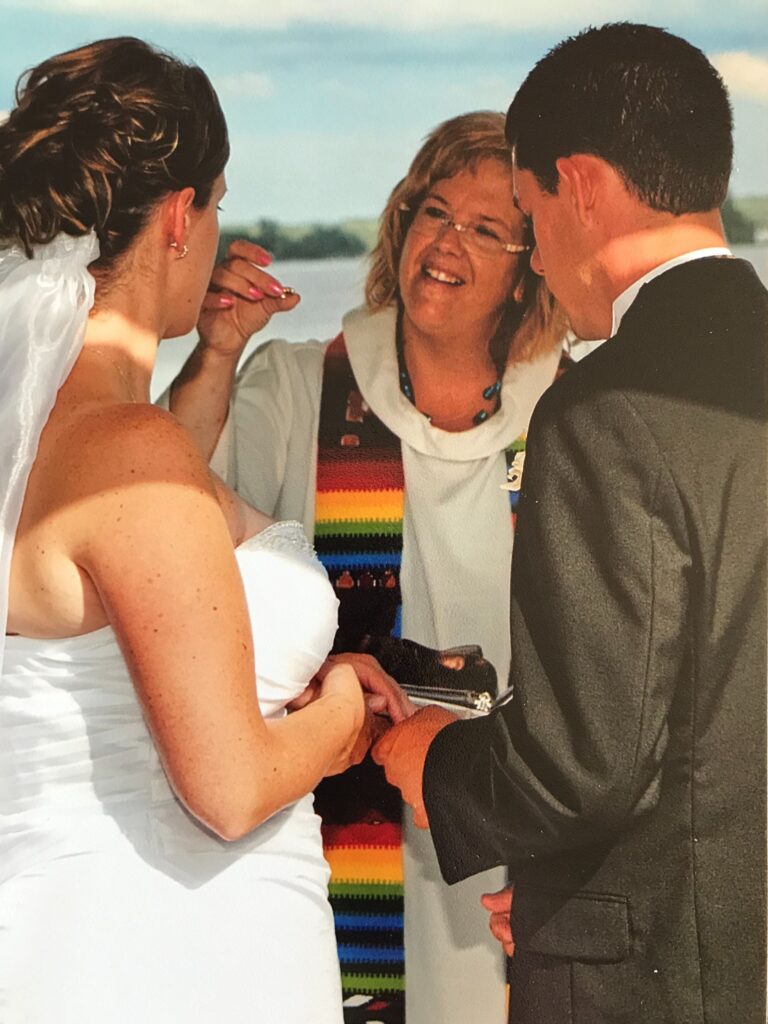
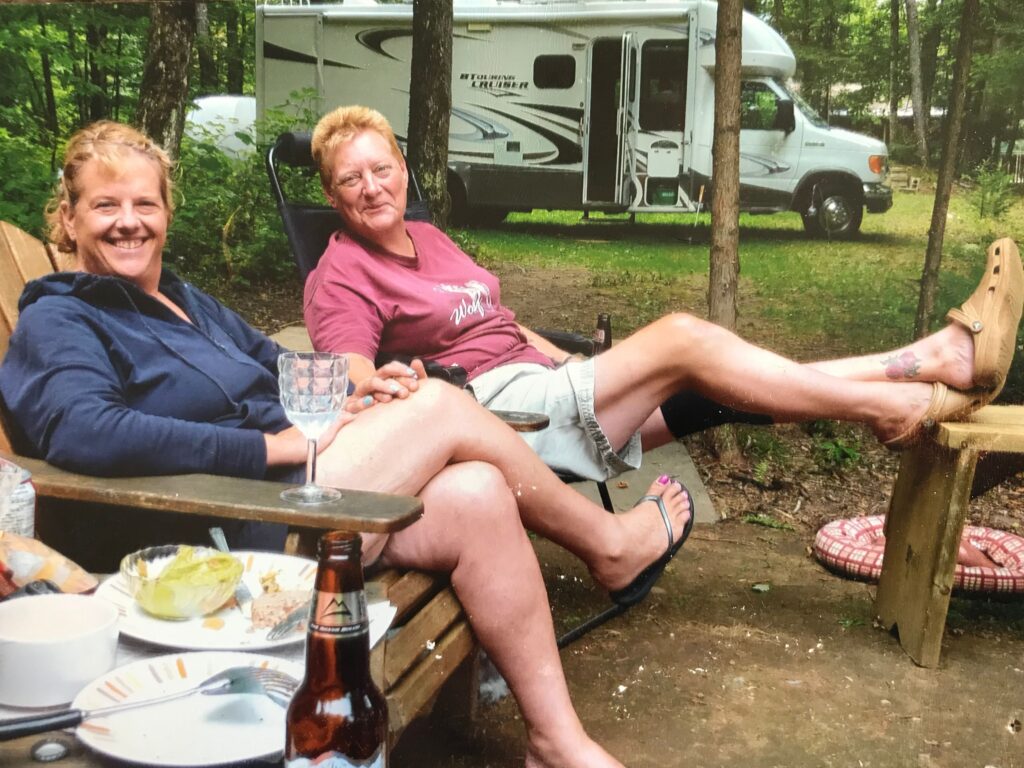
The recently unpacked boxes from Macklin’s move to Brockville filled up again and the couple moved to Macklin’s house in Pembroke, Ont.
Pembroke churchgoers were cold at best to Pilatzke and her wife. One church even banned LGBTQ+ people from worshipping there after the couple tried to attend. Hint taken. The two sold Macklin’s Pembroke house, packed an RV with camp gear and journeyed west.
When they returned to the Ottawa Valley in March, their RV was too cold to live in. Pilatzke and Macklin crashed with relatives until they found a rundown place to rent.
Pilatzke answered phones at Bee-Line Wreckers and worked the cash register at Mac’s Milk to pay the bills. She couldn’t put her pastor gig away, though. Counselling gruff Bee-Line workers and young Mac’s patrons became her second job.
“When I could not see the face of Christ in the people who went to (church) buildings, I could see (it) in the faces of the people I worked with,” says Pilatzke with a smile. Her minimum wage jobs taught her she didn’t need a church – only if the right one came along would she return.
At the same time, St. David was searching for a new pastor. Located in Orillia’s south ward – a food desert that’s home to seven subsidized housing buildings – the church needed a pastor who could understand the community.
“She knew what it was like to go from paycheque to paycheque,” says congregant Sandy Donald, “She was absolutely perfect.”
The ELCIC voted to allow same-sex marriage in 2011, meaning Pilatzke could preach at St. David. She was hired in 2014.
For nearly eight years now, Pilatzke has spent Sundays preaching at the modest brick church. A few pews have been removed to make way for cushioned chairs, and a projector screen hosts hymn lyrics for accessibility in the open concept chapel.
Donald says the church has always been a friendly place, but has become more relaxed in the years since Pilatzke’s arrival. It’s a church where worshippers sing “Dropkick Me Jesus” at funerals and small children help bless communion bread at the altar.
St. David’s ‘church family’ is what keeps 15-year-old Meadow Gagnon coming back.
Meadow started attending the church’s Tuesday night kids group after getting to know Pilatzke and church member Nancy Hannah, who volunteered at Gagnon’s elementary school.
She stopped attending the kid’s group at age 11. At age 14, she started feeling connected to faith again. So, on the unseasonably warm first Sunday in 2020, Meadow made the two-minute walk from her house to the church.
Inside, Meadow found a friend from school to sit with, and Pilatzke gave her a big wave and smile from across the chapel. The loving atmosphere was unlike any church service she’d attended before.
“It was you and God and that was it,” says Meadow of other churches she’s attended, where pastors yell their sermons and anti-LGBTQ+ sentiments are common. “I find at St. David, it’s all about the community.”
Though the Lutheran church now accepts gay marriage, norms take time to change. Even at St. David, 16 congregants left when Pilatzke arrived.
A year later, Meadow still attends virtual church. She says her baptism on Easter Sunday marked a step further into faith.
Pilatzke has followed through on her mission to help the community. St. David’s free breakfast program and counselling services were already under way when Pilatzke arrived, though she and her congregation have expanded their outreach since then.
Due to COVID-19 restrictions, the church paused most of its outreach programs. Making sandwiches two Thursdays a month for a local men’s shelter is all they can do for now.
Driving out of the church parking lot one day last fall, Pilatzke spotted Ron, a breakfast program patron. Ron and Pilatzke text, though when he runs out of minutes on his cellphone plan Pilatzke has to wait to hear from him.
Pilatzke slowed her Hyundai next to Ron. After greetings, Pilatzke asked the sun-weathered man if the church should hand out bags of food on Sunday mornings.
“Food? We don’t need your food,” Ron replied from behind a thick beard, “We don’t come here because you feed us, we come here because you love us.”

